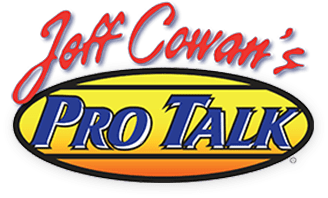ACCOUNTABILITYAccountability is near and dear to my heart. A common problem for management and business owners is that even after they train and work with their staff, providing the tools they believe will bring success, they still are not experiencing desired results. If you are unable to get your people to do the things you are asking them to do, it is probably due to FEAR. I find that when management can’t get their people to do what they want, it is because they are afraid to hold them accountable. When people fail to execute, there should be clear consequences that have been laid out prior to the employment agreement, and it is management’s job to deliver those consequences and hold them accountable. Unfortunately, people are afraid to follow through with the repercussions that need to accompany a failure to perform.
Consequences could include:-cut pay-performance review to reflect the failure-sending someone home for the day to regroup and recommit to the goal-termination of employmentBecause managers feel responsible for their employees, they often mistakenly see them as friends and extended family. It is extremely difficult for them to hold employees accountable for not reaching set goals. Mangers know the personal stories of their employees and what should be a business decision becomes very personal.“I can’t fire Sue, because she is a single parent and could not survive without this job.” The fact is that if you get rid of “Sue” and put someone else in her seat, someone who can deliver the numbers, you will be successful. It is not sound business practice to not hold an employee accountable when they underperform.I don’t think it’s fair that one person should dictate to you and your shop how much money you are going to make and how successful you are going to be. I don’t think it’s fair that any one person has that power.At Pro Talk, we have a saying: “Pro Talk is not about any one person. Pro Talk is about every, one person. ”Holding people accountable is the key to maximizing full potential. You must set minimum standards for your employees. These standards must encompass more than just showing-up on time, being present for an entire shift, staying a whole shift, and answering the phone. I am talking about setting performance minimum standards- quantifiable, defined goals that are to be met and exceeded. These expectations must be communicated and mutually agreed upon.
Performance Minimum Standards:
- customer paid hours per repair order- 2.5 hours per repair order
- minimum standard effective labor rate- 92-94% of your door rate
Provide a defined plan for what happens when goals met, exceeded, or not met. You are creating a business contract with your employees. They are not your friends and/or family. They see it that way and so should you.You will attract the best of the best, because top service people want accountability. You will create a business culture of change, growth, and a management that is committed to the staff. Lazy people will be weeded out.
Personal Story: In the 2008 recession, my wife and I took an enormous hit to our income because we did not want to downsize. We felt responsible for the livelihoods of the people who worked for us. The stress mounted and my wife finally confronted me. She was genuinely in despair about our future. I reassured her by telling her that she married a professional salesperson who is great at moving product. I will never be unemployed, because in the USA great salespeople are always in demand, regardless of the state of the economy. We were going to be fine. However, our conversation led me to a great realization. The people that I took a huge financial risk for, so that they did not have to, were the problem. Not one time did one of my trainers attempt to go above the minimum. Not one time, when I was working on a weekend, did anyone offer to help. Not one time, did anyone offer to accompany me when I was doing free workshops to keep the business afloat. I was not bitter or mad. My employees saw the relationship for what it was- a business deal. They did not see me as family. From that moment on, I drew a line in the sand. I communicated to my employees my expectations and the consequences of not meeting those expectations. This included how rewards would be distributed and the criteria for termination. This new policy resulted in me losing my best trainer and salesperson. Everyone else stayed. They liked the new culture, because they understood the rules. They liked that there was no favoritism and no free passes. It motivated them and created great opportunity for them to maximize their potential. Hold your people accountable, make the tough calls, and remember to never allow one person to dictate the success of everyone else.








 Based in the USA
Based in the USA